42 reading food nutrition labels
Importance of Reading and Understanding Food Labels Nutrition facts labels are found on all food products except very small packages, fresh foods such as fruit and vegetables, and local bakery or organic products. On the labels, you can read which ingredients or additives are in the food, what is its nutritional value, how it should be stored, who the producer is, and where the food was produced. Understanding Food Nutrition Labels | American Heart Association When the Nutrition Facts label says a food contains "0 g" of trans fat, but includes "partially hydrogenated oil" in the ingredient list, it means the food contains some trans fat, but less than 0.5 grams per serving. So, if you eat more than one serving, you could end up eating too much trans fat.
How To Read A Food Nutrition Label: The Basics | Gobble For example, the USDA recommends that most people get 1,000 mg of calcium per day. So, if a serving of food contains 100 mg of calcium, this means the serving contains 10% Daily Value of calcium. The same applies to items on the food label you may want to avoid, like fat and cholesterol. For example, 15 grams is 20% Daily Value for total fat.

Reading food nutrition labels
Food label reading guide | Nutrition Australia What to look for when reading food and drink labels (per 100g) Health Star Ratings The Health Star Rating is a front of pack labelling scheme which can be used to make healthier food choices at a glance. The rating range is from ½ - 5 stars and the more stars, the healthier the choice. Recommended minimum star ratings for food and drink categories How To Read Nutrition Labels - Mayo Clinic Diet All the nutrition info — including calories — refer to the amount in one serving. 2. Check the calories in one serving 40 calories is low, 100 calories is moderate, 400 calories or more is high. Remember: If you eat multiple servings, you'll need to multiply the calories by the number of serving that you eat. 3. Check the % Daily Value How to Read a Nutrition Label: Tips from a Registered Dietitian Year the FDA updated the nutrition label to show new nutrition science 2,000 Calories per day for an average diet (basis for food labels) 25 Maximum grams of added sugar per day recommended for women 36 Maximum grams of added sugar per day recommended for men Tip 3: A higher percent of daily value is not always better.
Reading food nutrition labels. Reading food labels: Tips if you have diabetes - Mayo Clinic Look for foods with fats, cholesterol and sodium on the low end of the Daily Value; keep fiber, vitamins and minerals on the high end. If your doctor or registered dietitian recommends more or less than 2,000 calories a day, you may need to adjust the percentage accordingly — or simply use the percentage as a general frame of reference. How does reading food labels benefit? - Heimduo The following is a quick guide to reading the Nutrition Facts label. Step 1: Start with the Serving Size. Step 2: Check Out the Total Calories. Step 3: Let the Percent Daily Values Be a Guide. Step 4: Check Out the Nutrition Terms. Step 5: Choose Low in Saturated Fat, Added Sugars and Sodium. Learning To Read Labels :: Diabetes Education Online On a nutrition food label, subtract the fiber from the total carbohydrate amount. When you read food labels, the grams of sugar are already included in the total carbohydrate amount, so you do not need to count this sugar amount separately. The grams of sugar listed include both natural sugars, from fruit or milk, and added sugars. How to Understand and Use the Nutrition Facts Label | FDA - U.S. Food ... Dietary fiber, vitamin D, calcium, iron ad potassium are nutrients on the label that Americans generally do not get the recommended amount of. They are identified as nutrients to get more of....
Food labels - NHS Most pre-packed foods have a nutrition label on the back or side of the packaging. These labels include information on energy in kilojoules (kJ) and kilocalories (kcal), usually referred to as calories. They also include information on fat, saturates (saturated fat), carbohydrate, sugars, protein and salt. Food Labels: Fat & Cholesterol | Home & Garden Information Center Two important parts of a food label are the "Nutrition Facts" panel, which contains nutrition information, and the ingredients list. In addition, some labels contain a nutrient claim, such as "low-fat" or "fat-free." ... For more information on food labeling request: HGIC 4056, Reading the New Food Labels; HGIC 4057, Determining ... The Basics of the Nutrition Facts Label - Academy of Nutrition and ... Low is 5% or less. Aim low in saturated fat, trans fat, cholesterol and sodium. High is 20% or more. Aim high in vitamins, minerals and dietary fiber. Low calorie: 40 calories or less per serving. Low cholesterol: 20 milligrams or less and 2 grams or less of saturated fat per serving. Reduced: At least 25% less of the specified nutrient or ... Reading Food Nutrition Labels 101 and How to Decode Them 8 Rules for Reading Food Nutrition Labels: Never believe the flashy claims on the front of the box. Always read the nutrition facts label and the ingredient list. Check the serving size. Check the amount of servings per package. Check the calories per serving. Check out the calories from each type of fat. Check the sodium.
Food Labels | CDC - Centers for Disease Control and Prevention If you eat the whole thing, you are eating 8 times the amount of calories, carbs, fat, etc., shown on the label. Total Carbohydrate shows you types of carbs in the food, including sugar and fiber. Choose foods with more fiber, vitamins, and minerals. Choose foods with lower calories, saturated fat, sodium, and added sugars. Avoid trans fat. Learn How the Nutrition Facts Label Can Help You Improve Your Health Read the Nutrition Facts labels on your packaged food and drinks to keep track of sugars, fats, protein, and other nutrients. Most sodium we consume is from salt, and salt is commonly in processed foods. Read labels and choose the product with less sodium. Drink plain water instead of sugary beverages. Food Labeling & Nutrition | FDA Food labeling is required for most prepared foods, such as breads, cereals, canned and frozen foods, snacks, desserts, drinks, etc. Nutrition labeling for raw produce (fruits and vegetables)... How to Read a Nutrition Label: Tips from a Registered Dietitian Year the FDA updated the nutrition label to show new nutrition science 2,000 Calories per day for an average diet (basis for food labels) 25 Maximum grams of added sugar per day recommended for women 36 Maximum grams of added sugar per day recommended for men Tip 3: A higher percent of daily value is not always better.
How To Read Nutrition Labels - Mayo Clinic Diet All the nutrition info — including calories — refer to the amount in one serving. 2. Check the calories in one serving 40 calories is low, 100 calories is moderate, 400 calories or more is high. Remember: If you eat multiple servings, you'll need to multiply the calories by the number of serving that you eat. 3. Check the % Daily Value
Food label reading guide | Nutrition Australia What to look for when reading food and drink labels (per 100g) Health Star Ratings The Health Star Rating is a front of pack labelling scheme which can be used to make healthier food choices at a glance. The rating range is from ½ - 5 stars and the more stars, the healthier the choice. Recommended minimum star ratings for food and drink categories




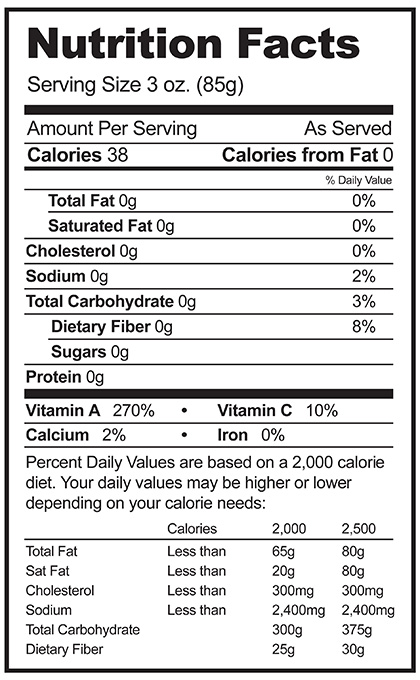
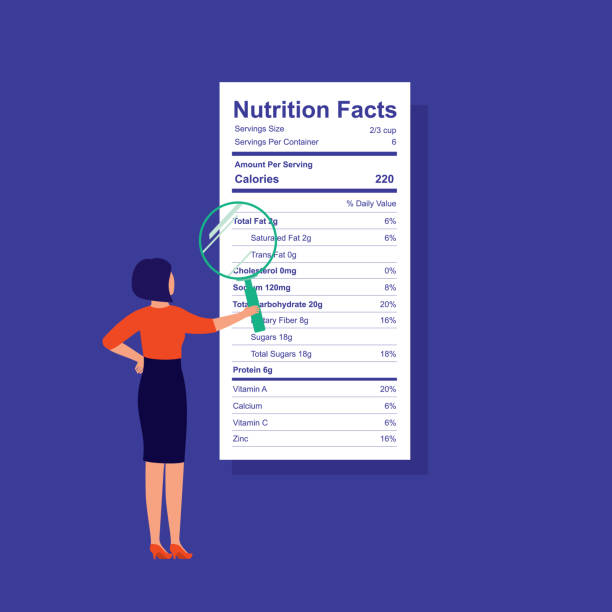

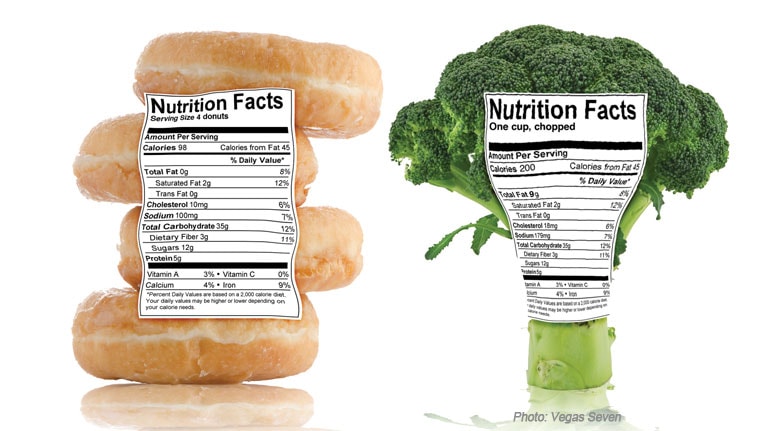
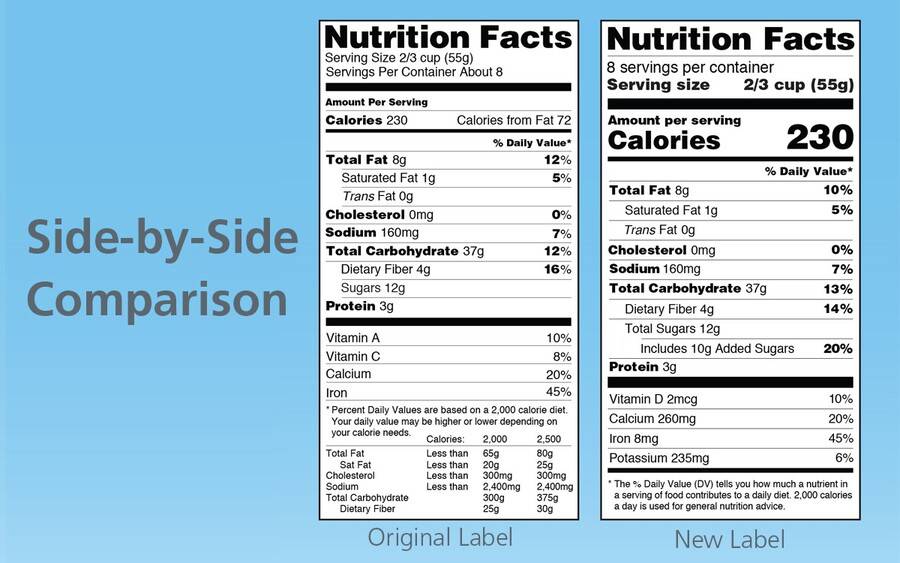





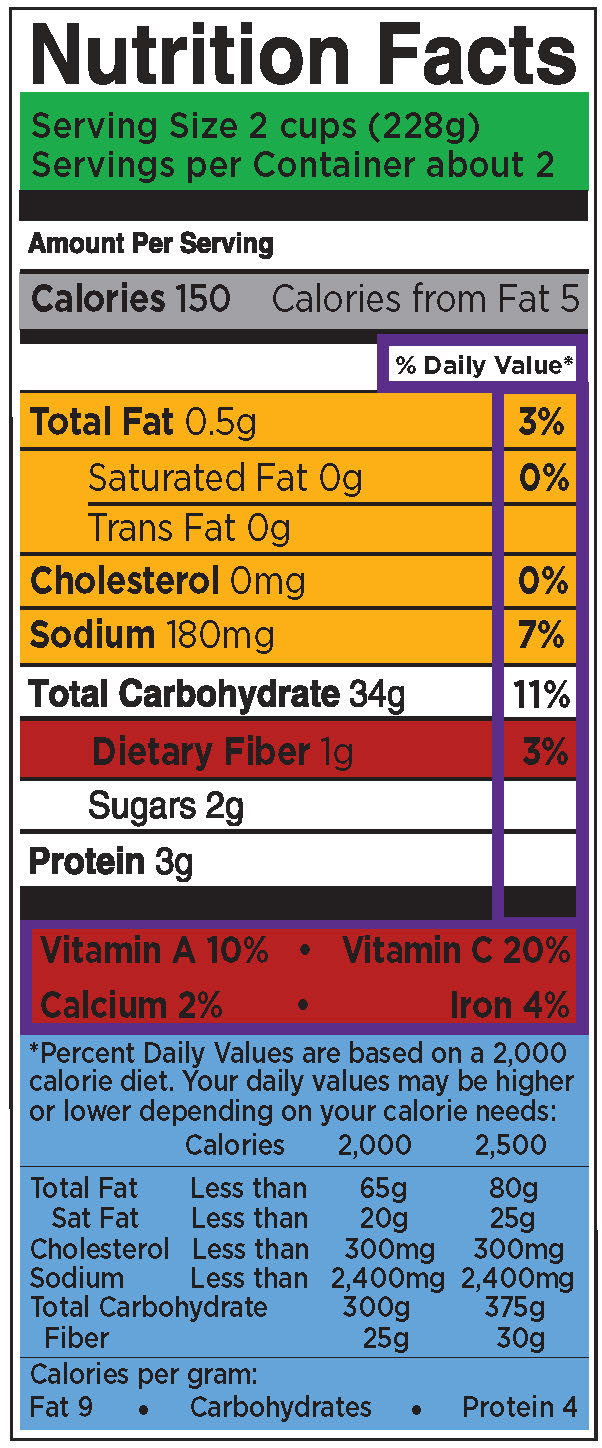



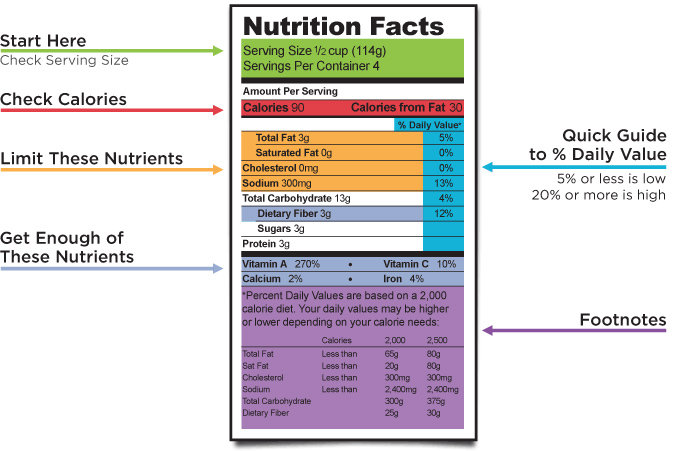
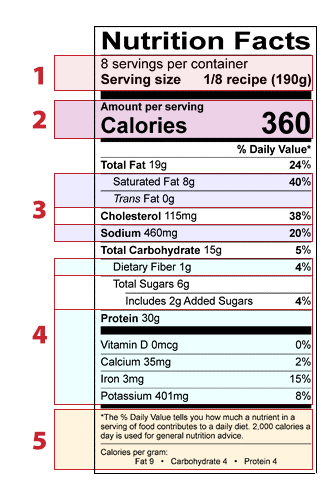




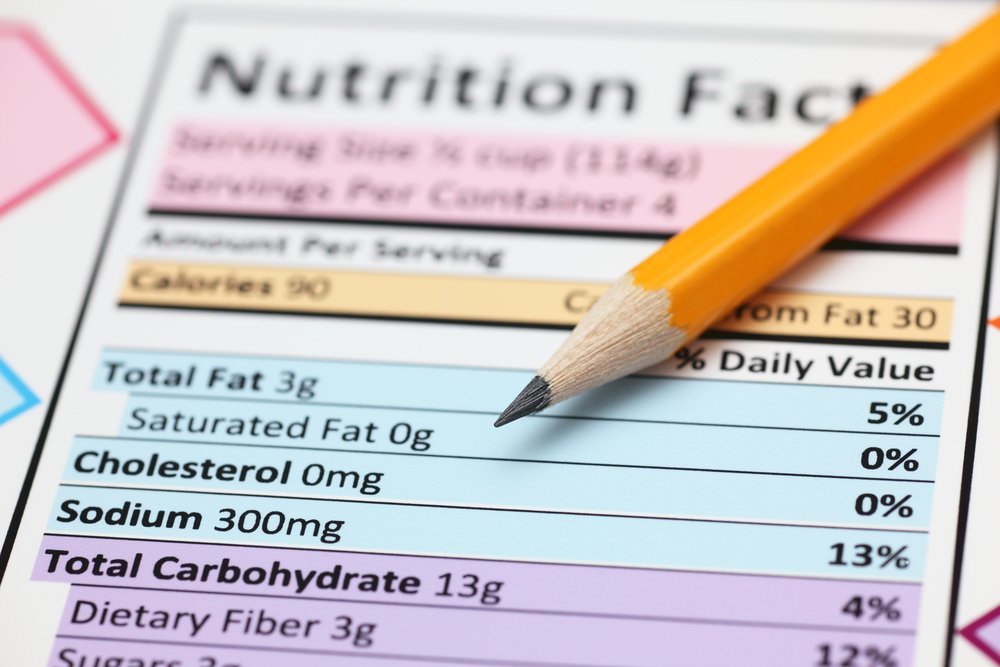

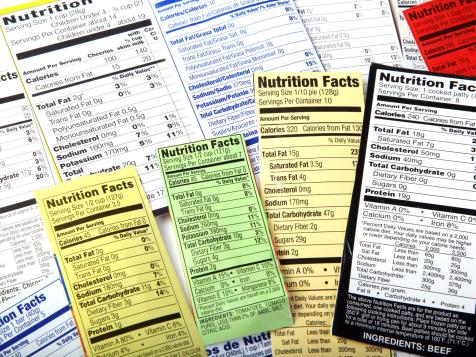
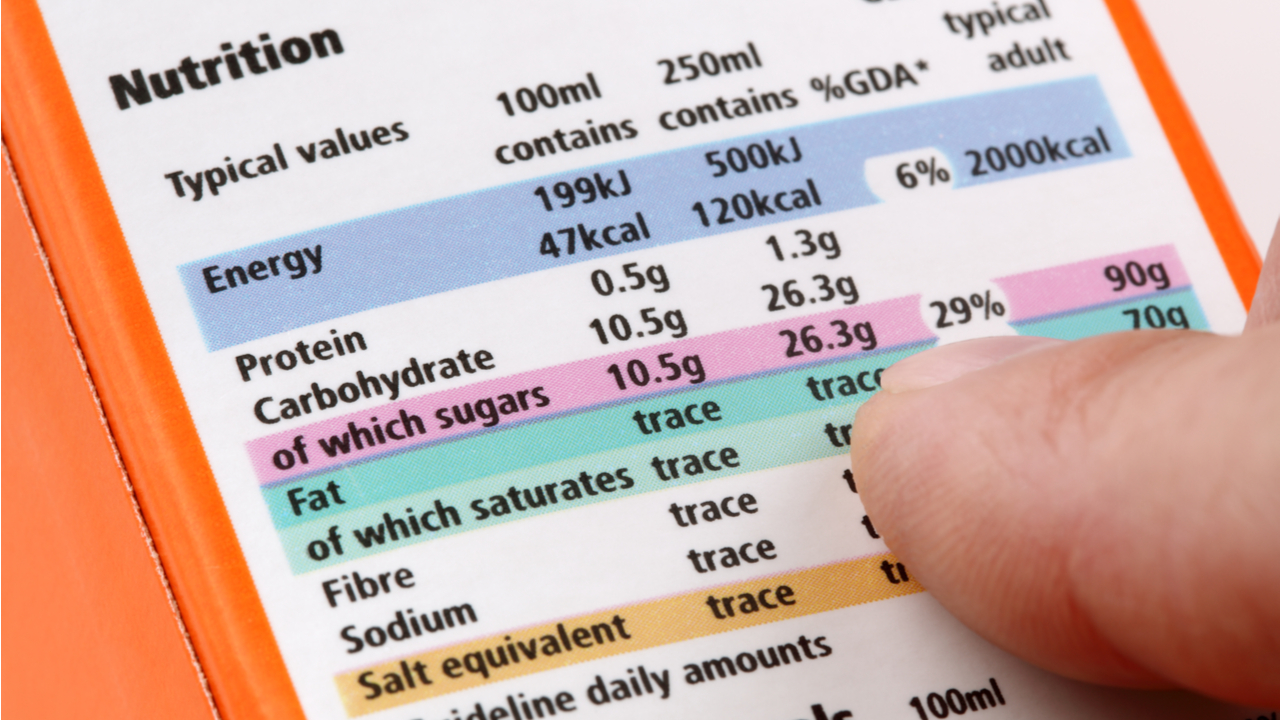
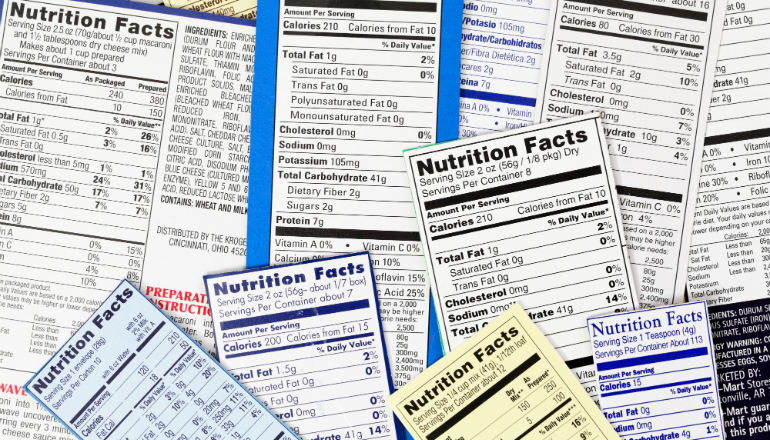

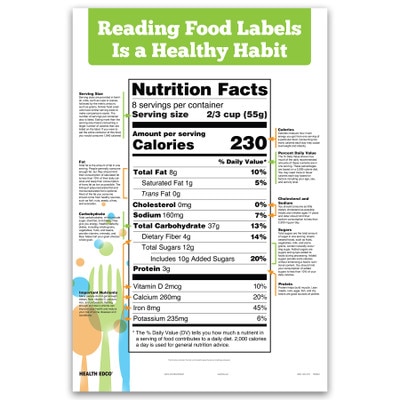


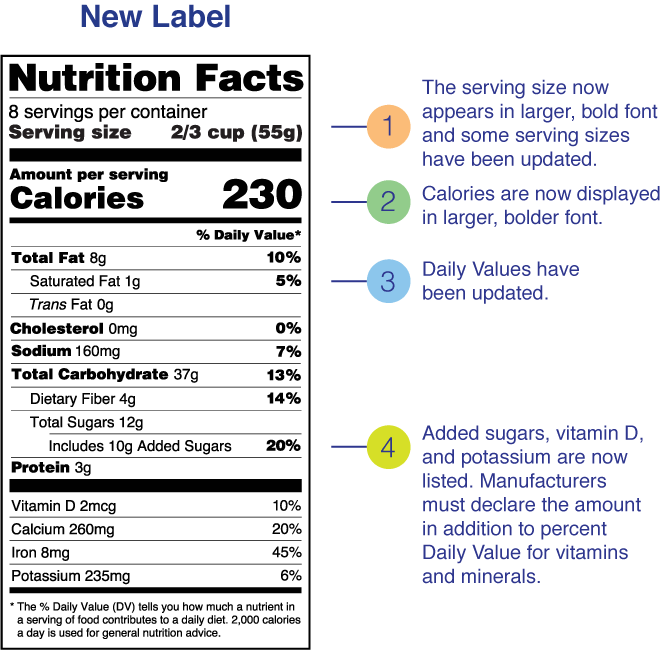
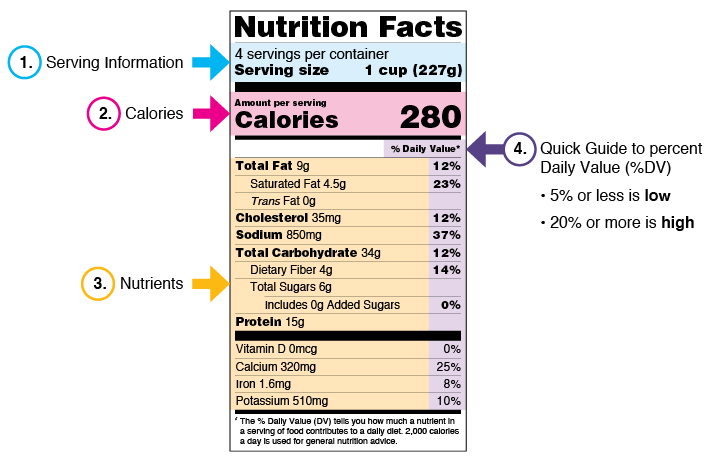


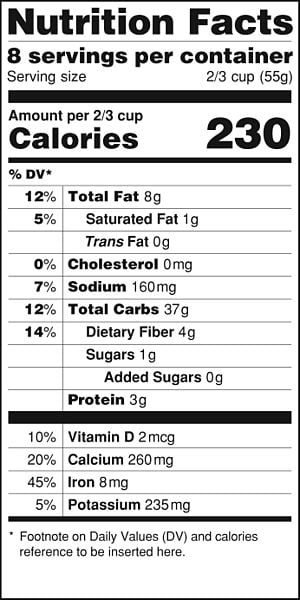
Post a Comment for "42 reading food nutrition labels"